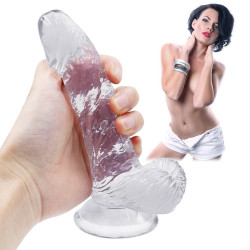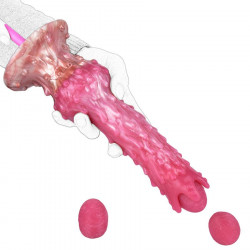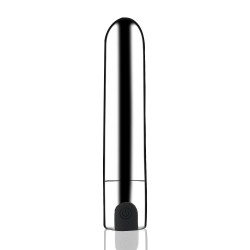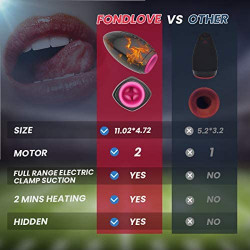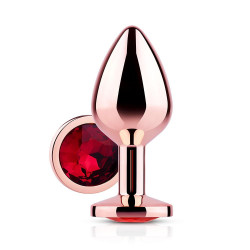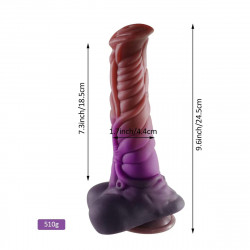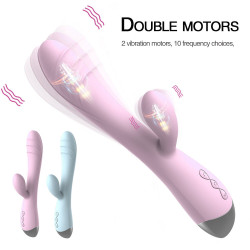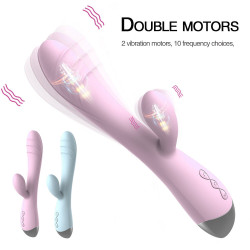
Humiliation Play: Things to Say If Your Partner's Into Sexual Denigration
Although there is much to learn about effectively using words, they can be a powerful sexual instrument. Above all, allowing yourself to be humiliated does not make you or anyone else a "horrible little person."
How dare you ask me, of all people, to teach you the fascinating hows and intriguing whys of consensual denigration, you awful little person?
Joking aside, consensual denigration, also known as humiliation play, is and probably always will be a widespread sexual practice.
Let's examine the history of this unquestionably popular kind of play, discuss some of the most popular varieties and styles, and then offer some advice on how to try them out for yourself without risk.
What is Humiliation Play?
In general, humiliation play is a subset of BDSM in which participants get sexual gratification from being, well, humiliated. This can be done physically, like being slapped or called names in public, or emotionally, such as receiving verbal abuse.
However, clarifying what humiliation play isn't is just as crucial as describing it. There is no if, and, or but to it: Because humiliation play can cause severe, if not permanent, emotional distress, degrading someone without their express agreement is and always will be harmful.
Humiliation play is so dangerous that, even after you've spent days, weeks, months, or however long it takes to build as many emotional defenses as you can think of and how you'll react if something goes wrong, I still advise you to proceed very—that is, extremely—slowly.
This entails taking frequent breaks and checking in frequently while playing, both for the one being humiliated and the ones doing the degrading.
You need to exercise extra caution even though humiliation play might be arousing—and frequently is, since you're playing with someone's mind and spirit on top of their body.
A humiliation play scenario should conclude with everyone feeling better than before, just like in physical BDSM. Unless, of course, you had previously agreed on something else.
Positive vs Negative Humiliation
Assessing your preference for "positive" or "negative" humiliation is a helpful first step if you consider participating in humiliation play.
Although it sounds a bit demeaning, positive humiliation is uplifting. For example, "Only a sex-obsessed tramp like you would forget to do the laundry," or "You're a wonderfully dirty slut."
More disrespectful is negative humiliation, such as "You're a pathetic little creature" or "Of course you disappointed me."
Before beginning a humiliation scene, it is best to negotiate the differences between positive and negative humiliation. It can be emotionally devastating to mistake one for the other, even for a short time.
Types of Humiliation Scenes and How to Use Them
Put down and turned on? You're in luck because there are countless, distinctive humiliation play situations to discover!
Here are some of the most well-known humiliation play scenarios, along with words and phrases that could be appropriate for each:
Slut Humiliation
Calling someone a slut is a timeless classic that, depending on the situation or the way it is spoken, may or may not be affirming. Since the term "slut" is gender-neutral, it's a great way to make fun of anyone, provided that person agrees to be called that.
Examples of responses to this kind of humiliation include the following:
- Slut, get over here.
- You're a slut.
- You and other sluts are only good at one thing.
Feminization
Working with a submissive's desire to act or look more feminine is called "sissy training," or forced feminization. Feminization scenes, which are often used as a kind of counter-masculinity punishment against male-identifying individuals, can include dressing in feminine clothing and requiring stereotypically feminine behavior, such as cleaning, oral sex, or washing.
What to say is as follows:
- What a lovely little woman.
- How fucking a jerk you are.
- Girls should only talk when someone speaks to them.
Small Penis Humiliation
Small penis humiliation usually consists of disparaging the recipient's genital size or conveying their uselessness. Sometimes, these scenarios involve physical punishment, such as making someone reveal themselves or having their flaws examined and disparaged.
What to say:
- Who would like a dick that small?
- Remove that tiny worm from my presence.
- Is that sorry thing referred to as a penis?
Infantilization
Infantilization play, a type of age play in which participants act out an age that differs from their actual age, usually involves physically and emotionally treating a recipient like an infant, such as making them wear diapers or spanking them. Acting somewhat older, as in role-playing as a preteen or adolescent, can also be referred to as infantilization.
It's important to remember that infantilization and pedophilia are not the same thing; persons who engage in infantilization have no interest in having sex with children. Consenting adults pretending to be different ages is known as infantilization. If it doesn't, it is rape, not infantilization.
What to say about infantilization play is as follows:
- You're a dirty, dirty child.
- What a pathetic little creature.
- Do you think I'll tidy up this mess?
Denegration
Depending on what each person enjoys and agrees to engage in, the phrase "denigration" can refer to a variety of sexual acts, making it more of a generic catch-all than a particular kind of humiliation play. As previously mentioned, denigration can be either affirming or insulting, but it must not go against any terms that have been agreed upon.
What to say:
- All you are is a terrible little monster.
- You should be embarrassed by yourself; you are pathetic.
- What a beast with an incredible appetite.
Why Are People Into Humiliation Play?
To say that some people find humiliation to be sexually and/or emotionally gratifying is a serious—and I mean severe—understatement.
According to Dr. Justin Lehmiller, humiliation play is a type of masochism, even if the general agreement seems to suggest a few alternatives.
Learning theory posits that if a person has previously experienced both pleasure and pain together (or if pain coincides with a particularly strong orgasm), they may learn an association that they then try to replicate in the future, according to Dr. Lehmiller.
Extrapolating this hypothesis to emotionally charged experiences, such as those engaged in consensually humiliating or demeaning others, A person may experience similar emotional sensations in the future if emotionally charged events in the past were accompanied by tremendous pleasure.
Additionally, Dr. Lehmiller writes that humiliation play is a means of letting go of oneself. According to him, experiencing sexual pain could be a means of assisting you in losing yourself in the moment.
Aftercare for Humiliation Play
Those involved in humiliation play situations need a lot of aftercare to deal with the emotional fallout. Time should be set aside to investigate everyone's feelings, even if providers and receivers believe it is unnecessary. This is because humiliation play might unpredictably bring up memories of abuse, bullying, or other emotionally devastating events.
The following are some ideas for aftercare practice:
- Talk about the experience together. What emotions did it evoke? What was enjoyable to you? What didn't you like? Would you wish to avoid or further investigate any specific terms or phrases in the future?
- Engage in non-sexual physical intimacy. Make out, rub each other, and cuddle.
- Refuel. Any form of sex drains your energy! Get some water and eat a snack.
Conclusion
Although there is much to learn about effectively using words, they can be a powerful sexual instrument. Being humiliated does not make you or anybody else a "horrible little person." Therefore, proceed with caution, communicate before, during, and after your humiliation play scenario, and, most importantly, remember that a scene is just a scene.





